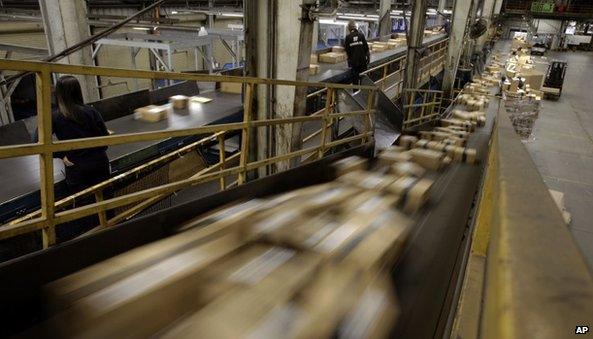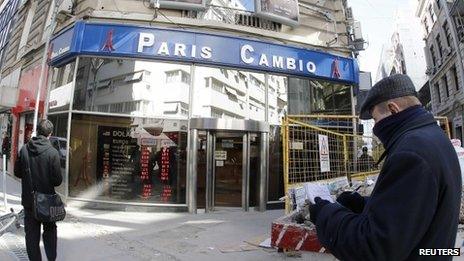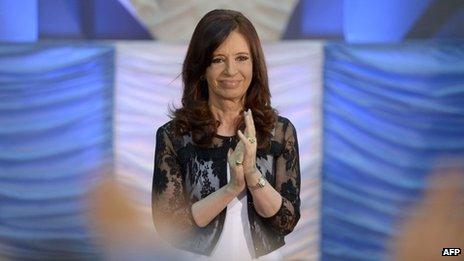Argentina restricts online shopping as foreign reserves drop
- Published

Restrictions already include a 35% tariff on credit card transactions abroad
Argentina has introduced new restrictions on online shopping as part of efforts to stop foreign currency reserves from falling any further.
Anyone buying items through international websites will now need to sign a declaration and produce it at a customs office, where the packages have to be collected.
The procedure will need to be repeated for every new purchase.
Argentina's reserves of hard currencies dropped by 30% last year.
The government of President Cristina Fernandez de Kirchner has introduced a number of restrictions on transactions with foreign currency.
Items imported through websites such as Amazon and eBay are no longer delivered to people's home addresses. The parcels need to be collected from the customs office.

In the past two years, the government has introduced restrictions on buying dollars
Individuals are allowed to buy items up to the value of $25 (£15) from abroad tax free every year. Once the $25 level is reached, online shoppers in Argentina need to pay a 50% tax on each item bought from international websites.
The government tightened the restrictions later on Wednesday limiting tax-free purchases to two a year.
One resident of Buenos Aires, who gave his name as Martin, described the tax as "crazy".
But he told the BBC: "The real problem is that the item is received in customs now instead of at your home. Each time you go to customs, you need to spend three or four hours.
"I lose half a day's work, which is unacceptable."
Currency controls
Custom officials have been struggling to keep accurate records of consumers' transactions.
The government hopes the new declarations will make it easier to enforce the import tax, says the BBC's Ignacio de los Reyes in Buenos Aires.

The economy has grown during Fernandez's government, but inflation has reached double figures
New currency controls were introduced a week after Ms Fernandez was re-elected in 2011.
Among the restrictions introduced more recently was a 35% tariff on credit card transaction abroad.
Despite the government's efforts, Argentina's reserves are now below $30bn (£18bn) - their lowest level since 2006.
Currency controls, which were common in most countries until the mid-1980s were dropped in Argentina in 1991. Finance Minister Domingo Cavallo pegged the local currency, the peso, to the dollar.
The plan collapsed 10 years later, when the government was forced to devalue its currency.
The country eventually froze bank accounts and defaulted on its debts. It has since struggled to attract foreign loans at market rates.
- Published25 October 2013
- Published13 December 2012
- Published17 April 2012
- Published1 November 2011